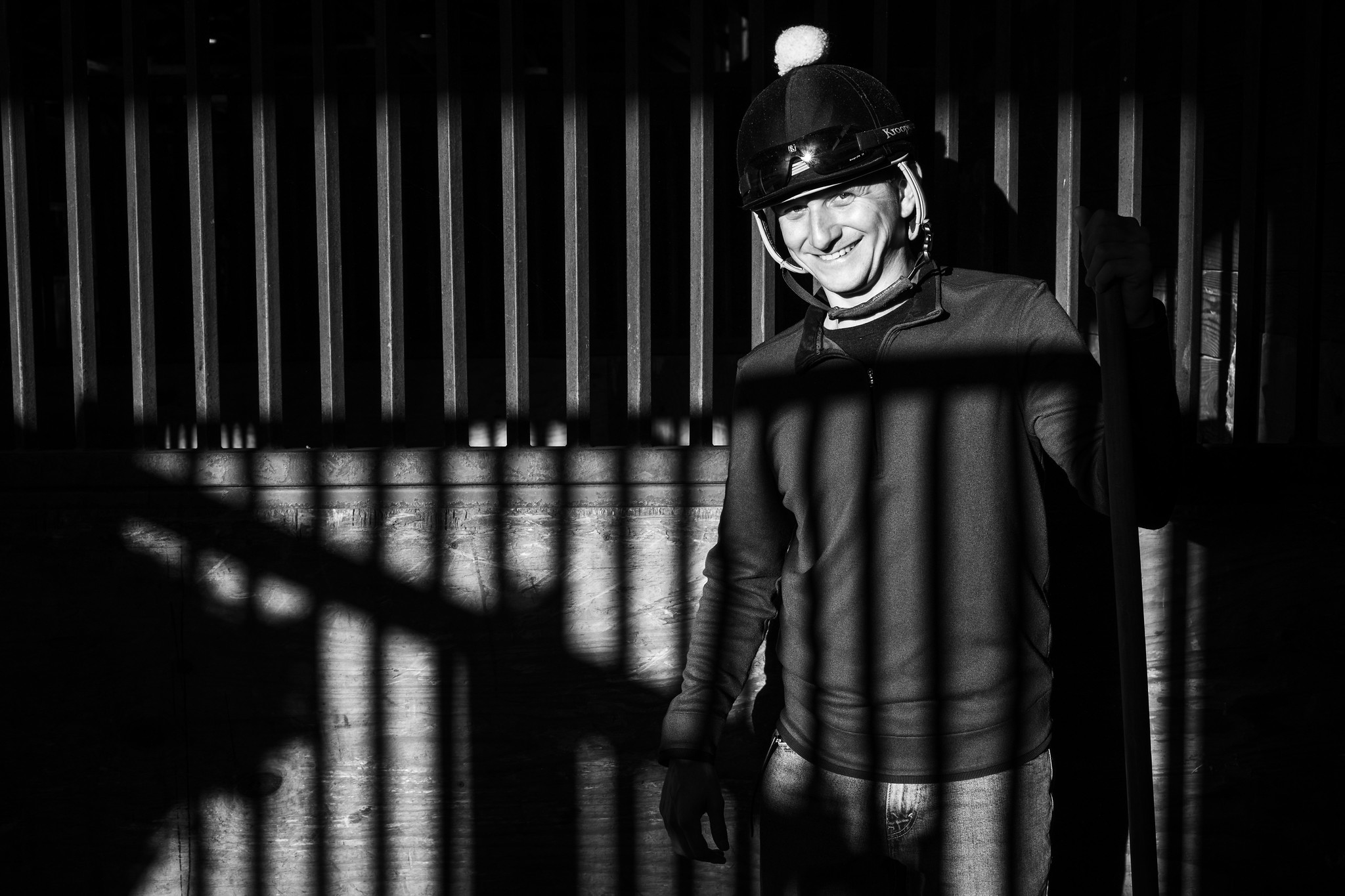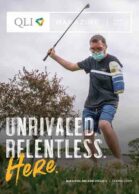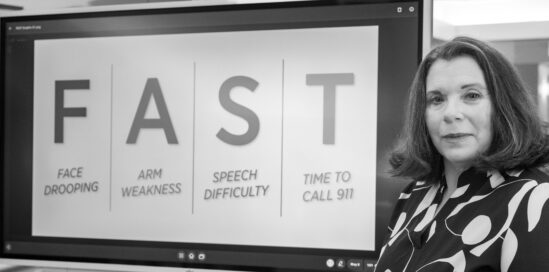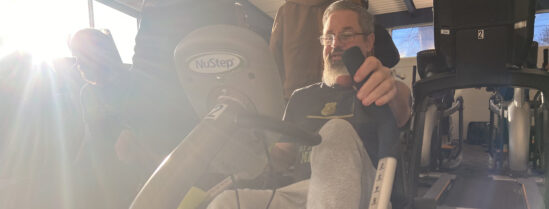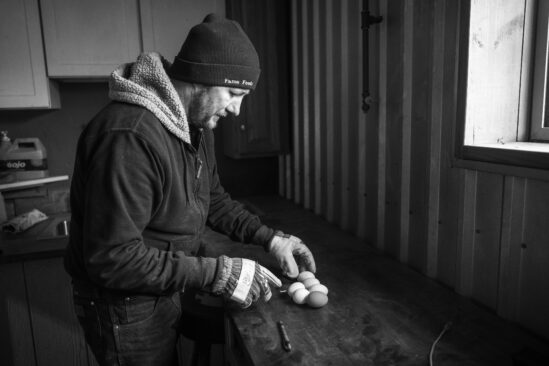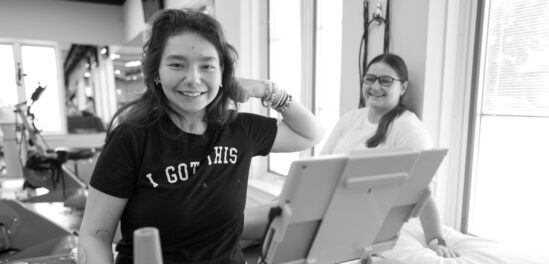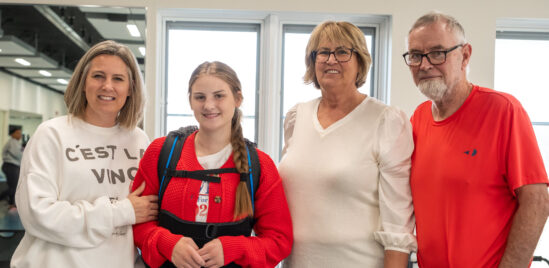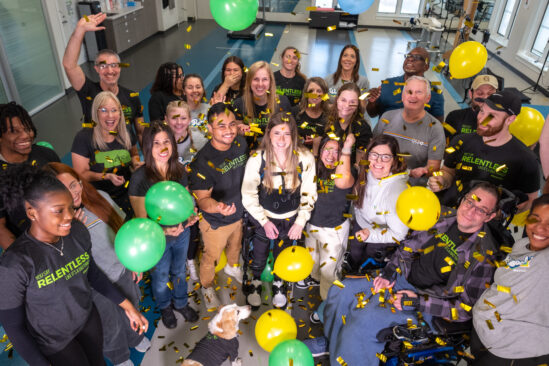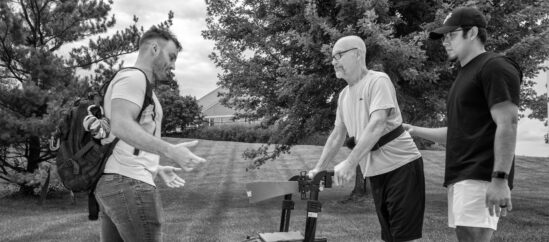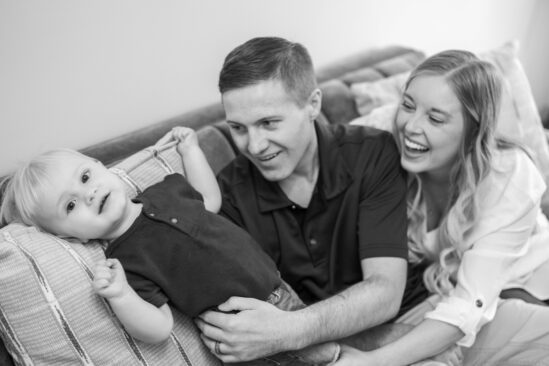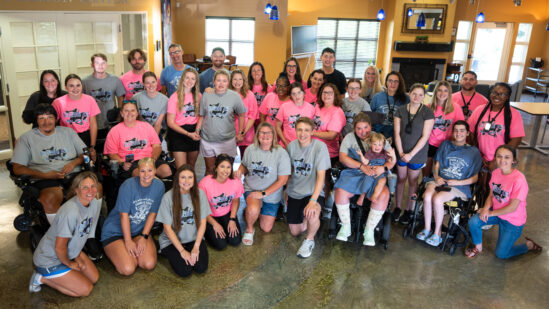When words can’t do it justice, Bryan Houghton turns to the camera roll. It isn’t populated in a scattered manner with various photos and selfies. Rather, it is deliberate. Meet him, and he will extend his phone to the person in question, scrolling through the years. He centers on a group of favorite photos and videos, though the catalog is so deep there is always something to be discovered. The setting is a horse track in rural Nebraska, a place to train and hold races. Bryan’s a passionate horse trainer—the videos affirm his dedication to the jump. Images of deep orange out of the sunrise come from within the screen, complete with slow-motion galloping across the frame. Others are still images—a rider of fierce intent on the back, a look of absolute determination on his face. “Yeah,” laughs Bryan, that’s him alright. Then he goes back further, showing captured segments of television coverage of the races, some he competed in as a jockey, others he observed as a trainer on the sidelines.
Bryan pauses. He’s itching to give more details, regale with tales of the training, or the thrill of the races. He starts to speak but stops. He smiles and looks up, furrowing his brow and trying to find the words. To his left sits speech pathologist Taya Tanner. He begins to speak a word he is looking for but in a tone hushed by faltering confidence. After a moment, they land on it. Then another smile, as if to say I’m sorry—forgive me. Yet Bryan has nothing to apologize for. Then the camera roll again—this time pictures of his family, his daughter. He smiles and laughs lightly at these, not just methods of introduction and initiating conversation with others, but motivation that he can constantly pull from.
There’s some irritation, which he notes with a tap on his head, the helmet protecting his skull from his cranioplasty. He walks better with each passing day, a willingness to work hard for the task at hand. For Bryan, it is a matter of when not if. His injury, from a horse kick in early 2024, left him with a brain injury. For his initial hospital stay, he went to Madonna Rehabilitation Hospital in Omaha, NE before coming to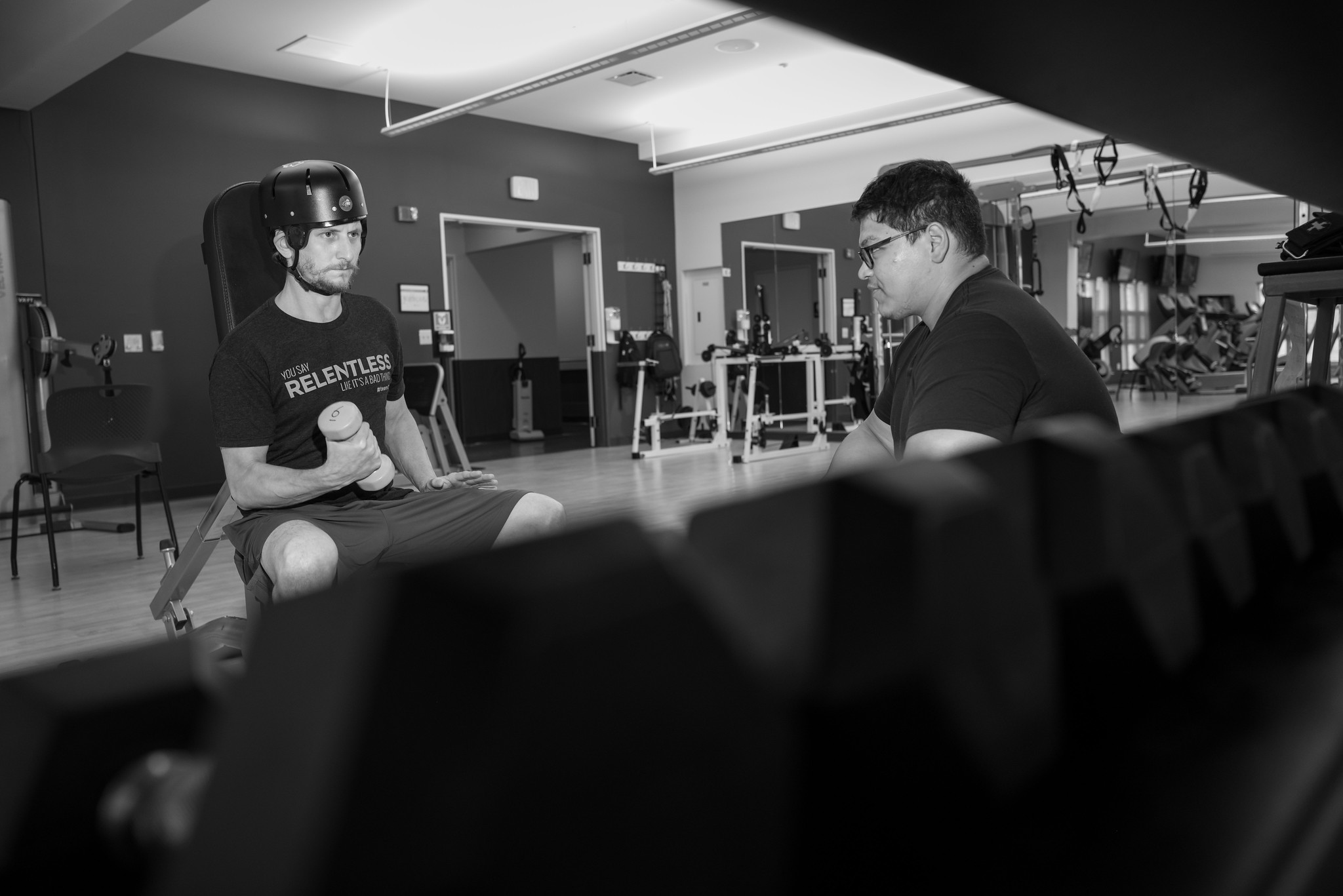 QLI. The physical side of Bryan’s recovery has shown itself in the building of repetitions of exercises, and he works with physical therapist Sammy Porter and exercise assistant Garrett Schliep to achieve these gains. The workouts themselves may not be much different than the kind of typical strength training at any gym. Beginning with a series of squats, they then progress to bicep curls and stretches, all the way to ramping up the number of curls or lifts in each session. It is progressional in its measure, but through those repetitions, it can become a learned pattern for Bryan’s brain, in addition to being easily repeatable in a home environment, something that is crucial to extend recovery outside the traditional walls of a rehabilitation campus. With the basis of strength then attained, Bryan’s team progressed to a gentle introduction to an environment meaningful to him—the pasture and stables. As part of his Life Skills and Life Path programs, Bryan worked with therapists to relearn the process of grooming horses and how to behave safely around them, a process of doubt difficult given the nature of his injury. Even his speech-language program furthers these joys, incorporating cognitive exercises through viewing documentaries about horses and horse training with Taya, pausing the videos at intervals to discuss what he saw on screen which exercises his memory recall and verbal expression through relaying the information in the videos. The benchmarks here are gracious, with delivered cueing in a way that allows for ultimate success.
QLI. The physical side of Bryan’s recovery has shown itself in the building of repetitions of exercises, and he works with physical therapist Sammy Porter and exercise assistant Garrett Schliep to achieve these gains. The workouts themselves may not be much different than the kind of typical strength training at any gym. Beginning with a series of squats, they then progress to bicep curls and stretches, all the way to ramping up the number of curls or lifts in each session. It is progressional in its measure, but through those repetitions, it can become a learned pattern for Bryan’s brain, in addition to being easily repeatable in a home environment, something that is crucial to extend recovery outside the traditional walls of a rehabilitation campus. With the basis of strength then attained, Bryan’s team progressed to a gentle introduction to an environment meaningful to him—the pasture and stables. As part of his Life Skills and Life Path programs, Bryan worked with therapists to relearn the process of grooming horses and how to behave safely around them, a process of doubt difficult given the nature of his injury. Even his speech-language program furthers these joys, incorporating cognitive exercises through viewing documentaries about horses and horse training with Taya, pausing the videos at intervals to discuss what he saw on screen which exercises his memory recall and verbal expression through relaying the information in the videos. The benchmarks here are gracious, with delivered cueing in a way that allows for ultimate success.
Bryan’s outlook on his life and all the components and people within it is simple and direct—it comes from a constant place of love, love for the work he does (“seven days of hard work,” he says, “But I enjoy every minute of it.”) and the people he is around—with his daughter described by him as “loving, caring, 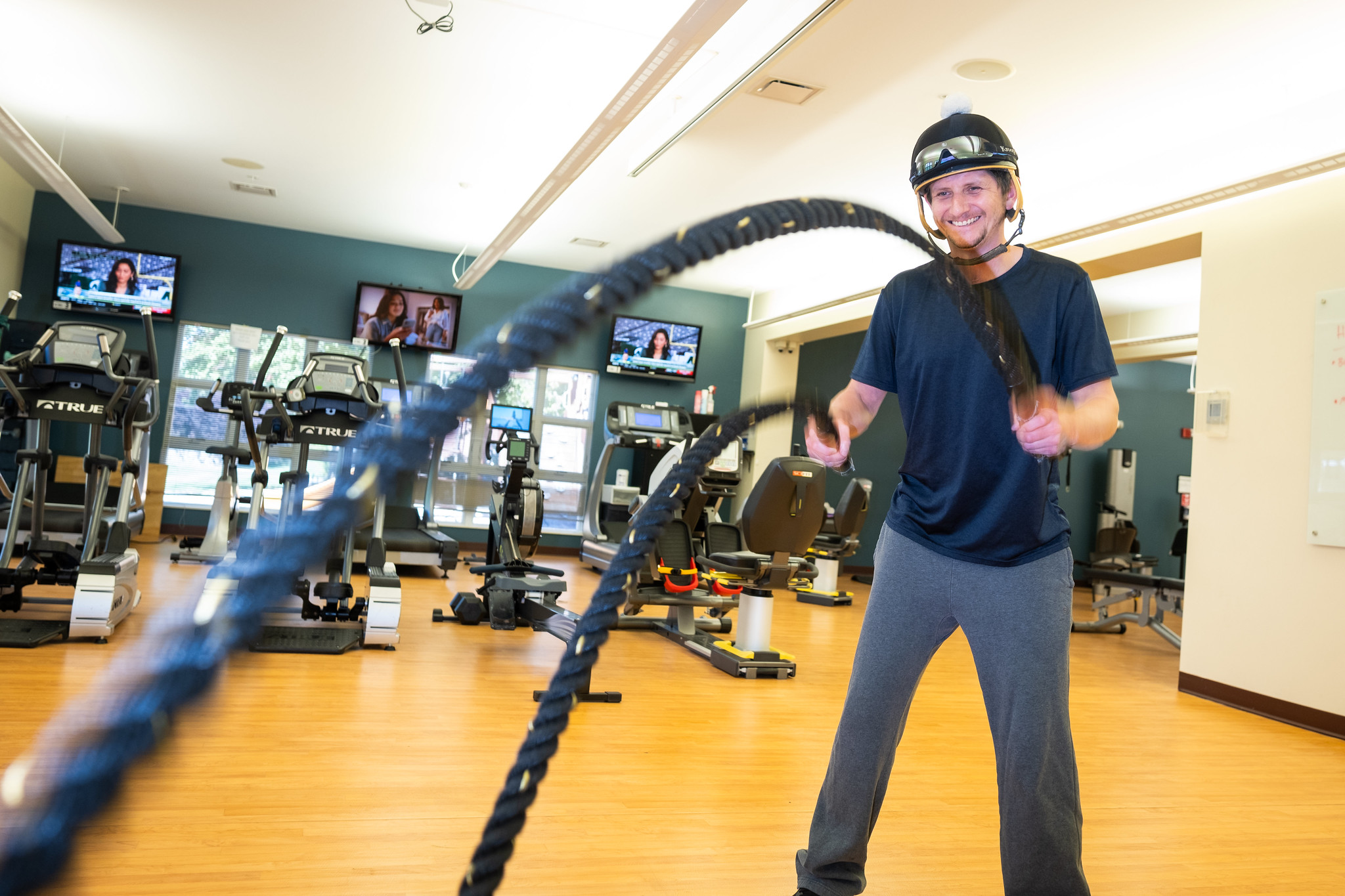 adventurous.” QLI unlocks that route with Bryan, mirroring where he wants to go with what is possible on campus and beyond. Bryan admits that the transition to QLI was a bit of a culture shock, furthered by a strain of reticence. He had a young daughter to get back to, a community that cared about him, and a profession that gave him daily affirmation and purpose. A continued stay away from that home seemed to Bryan to be holding him back from life. But now he sees it as altogether necessary to recognize deficits and weaknesses, and then move through them. To be the full-time horse trainer he once was would take time.
adventurous.” QLI unlocks that route with Bryan, mirroring where he wants to go with what is possible on campus and beyond. Bryan admits that the transition to QLI was a bit of a culture shock, furthered by a strain of reticence. He had a young daughter to get back to, a community that cared about him, and a profession that gave him daily affirmation and purpose. A continued stay away from that home seemed to Bryan to be holding him back from life. But now he sees it as altogether necessary to recognize deficits and weaknesses, and then move through them. To be the full-time horse trainer he once was would take time.
“I could see the determined and optimistic presence he had about him almost immediately,” says Taya. “His biggest goal has been functional communication, something very crucial, considering his roles as a father and trainer. Bryan benefits from both expressive and receptive communication,” Taya notes, “basic conversational interactions go over well for Bryan, but the more complex a conversation, the more support is needed.” Therefore, exercises in auditory comprehension, or how receives information, go leaps and bounds towards helping him—like the horse documentaries. “Communication,” says Taya, “is so much more than needing to communicate wants and needs—it’s sharing thoughts, ideas, and information.” There was in the beginning, Taya admits, a disconnect in Bryan’s awareness of his deficits and an assumption that though he was having difficulties in communicating at the present, the deficits would cease once he was back home.
Through diligent work though, Bryan, when faced with further communication breakdowns, knows, without prompting, to utilize his resources (such as Google to search for an image related to what he is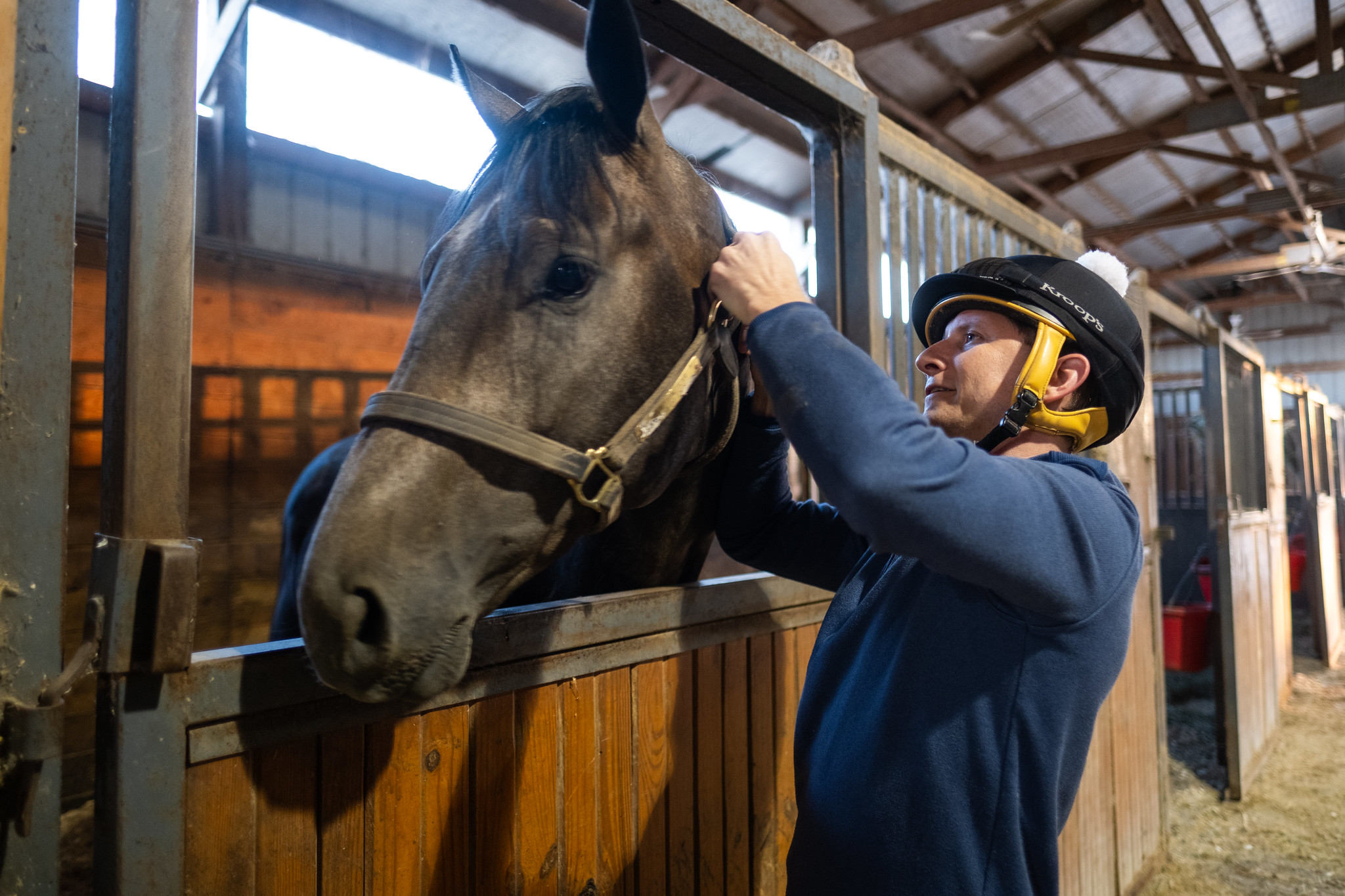 trying to say).
trying to say).
The collaboration with one of Bryan’s friends at his farm property in Ashland, NE wasn’t just a once or twice-a-week session, a break from his regularly scheduled programs and clinical sessions—these trips were the fulfillment of his work at QLI. Through the friendship he had, the Anderson family welcomed him with open arms. Now, as his schedule permits, Bryan is taken out to the farm multiple times per week, often staying from sun up to sun down, beginning his day with morning chores, and continuing to care for the horses. It’s hard work. He has a grin that reaches from ear to ear—not one that is temporary, but one that endures. He jokes with the team from time to time—“can I stay out here?” To be sure, the initial therapies were difficult in being able to replicate or articulate how the results of a clinical setting can translate over to the real world, Bryan can see that now, unambiguously, with the proof in tow that the work he dedicated his life to is very near at hand.
He now has a foot back inside HIS world.
